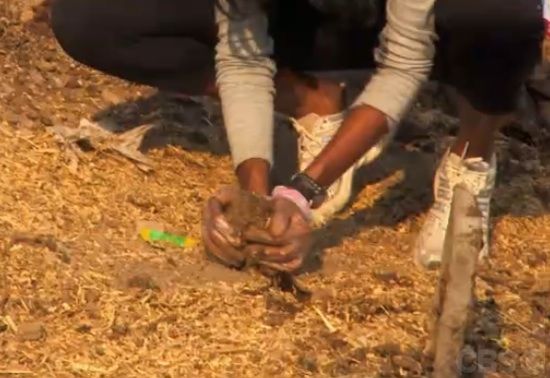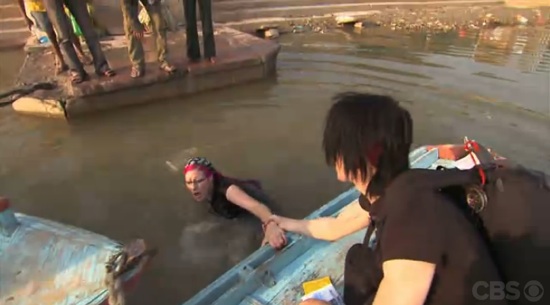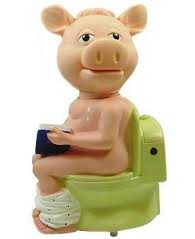In June 1997, at least seven people who attended the Glastonbury Music Festival in the U.K. were infected with Escherichia coli O157. A cow belonging to a herd that had previously grazed the site tested positive for the same strain, leading researchers to conclude the most likely vehicle of infection was mud contaminated with Escherichia coli O157 from infected cattle.
??In June 2007, hundreds were stricken and 18 tested positive for campylobacter during the annual Test of Metal mountain bike race in Squamish, B.C.?? Dr. Paul Martiquet, the chief medical officer for Vancouver  Coastal Health, said, "This was an outbreak with a high attack rate. Our future advice to the race organizers is to inspect the route prior to the race to ensure it is not littered with animal feces, and not end the race at the horse ring. If there is any horse poop, they have to remove it."
Coastal Health, said, "This was an outbreak with a high attack rate. Our future advice to the race organizers is to inspect the route prior to the race to ensure it is not littered with animal feces, and not end the race at the horse ring. If there is any horse poop, they have to remove it."
Up to 160 people who attended the Merida Bikes mountain bike Marathon July 5-6, 2008, based on Builth Wells, in Wales, fell ill, and 10 of the riders tested positive for campylobacter. The report described the course as,??“very muddy and contaminated with sheep slurry in certain areas, leading to significant amounts of mud splashing over participants and their equipment. … The most statistically significant risk was the inadvertent ingestion of mud.
So yesterday, the U.K. Health Protection Agency decided to remind Glastonbury goers not to play in animal poop.
Dr Mark Salter, a consultant in communicable disease control from the HPA’s Health Protection Unit in the South West has been attending festivals, including Glastonbury, for 20 years to offer health protection advice and has devised the following rock and roll tips to help people to stay safe.
If you become unwell, particularly with diarrhoea and sickness, before the festival don’t go as you could spread your illness to other people.
Make sure you use condoms with any new partners to protect yourself against any sexually transmitted infections. In 2010 there were over .jpg) 200,000 cases of chlamydia, genital warts, syphilis, gonorrhoea and herpes in the 15-24 year old age group in England.
200,000 cases of chlamydia, genital warts, syphilis, gonorrhoea and herpes in the 15-24 year old age group in England.
If you have to take medication for an existing condition make sure you take it with you as well as enough to last the duration of the festival.
Avoid using streams and rivers for bathing or cooling off as the water quality may not be suitable.
Don’t forget to wash your hands thoroughly after using the toilet, before eating and prior to preparing food. It is preferable to use soap and water but if that is not available then sanitising hand gel is a good substitute – bring your own and carry it around with you.
"My experience of providing health advice and assistance at festivals for over 20 years tells me that people generally end up being unwell due to the combination of too much alcohol, drugs, sex and less than ideal hygiene.”
 water. The farms belong to Henan Huaying Agricultural Development Co Ltd.??
water. The farms belong to Henan Huaying Agricultural Development Co Ltd.??
.jpg) pool. It got into the filtration system and they charged us to clean it. That was expensive. He took a $6,000 dump in the pool!”
pool. It got into the filtration system and they charged us to clean it. That was expensive. He took a $6,000 dump in the pool!” Coastal Health, said, "This was an outbreak with a high attack rate. Our future advice to the race organizers is to inspect the route prior to the race to ensure it is not littered with animal feces, and not end the race at the horse ring. If there is any horse poop, they have to remove it."
Coastal Health, said, "This was an outbreak with a high attack rate. Our future advice to the race organizers is to inspect the route prior to the race to ensure it is not littered with animal feces, and not end the race at the horse ring. If there is any horse poop, they have to remove it.".jpg) 200,000 cases of chlamydia, genital warts, syphilis, gonorrhoea and herpes in the 15-24 year old age group in England.
200,000 cases of chlamydia, genital warts, syphilis, gonorrhoea and herpes in the 15-24 year old age group in England..jpg) else says
else says  way that would be difficult in a proper brick and mortar eatery (right, vegetarian mi quang, a thick noodle common to Central Vietnam, served in a Ho Chi Minh City street stall. Credit: Dave Hagerman).
way that would be difficult in a proper brick and mortar eatery (right, vegetarian mi quang, a thick noodle common to Central Vietnam, served in a Ho Chi Minh City street stall. Credit: Dave Hagerman)..jpeg) poop," is Powell’s blunt advice. "But if you’re going to eat it, make sure it’s cooked." Street food vendors have a particular challenge because they work in small spaces, facilitating cross-contamination between "clean" and "dirty" foods.
poop," is Powell’s blunt advice. "But if you’re going to eat it, make sure it’s cooked." Street food vendors have a particular challenge because they work in small spaces, facilitating cross-contamination between "clean" and "dirty" foods. manure and then slap them on the wall to dry in the sun. Finally, teams loaded a stove with fuel patties and lit a fire to boil milk for the local children.
manure and then slap them on the wall to dry in the sun. Finally, teams loaded a stove with fuel patties and lit a fire to boil milk for the local children.
 in federal court on Monday. His suit alleges that the companies failed to protect him from hazardous work conditions.
in federal court on Monday. His suit alleges that the companies failed to protect him from hazardous work conditions. while in the bathroom.
while in the bathroom. potty-train his 10,000 pigs in late 2009, it said.
potty-train his 10,000 pigs in late 2009, it said. to hepatitis A while receiving communion on Christmas Day.
to hepatitis A while receiving communion on Christmas Day.